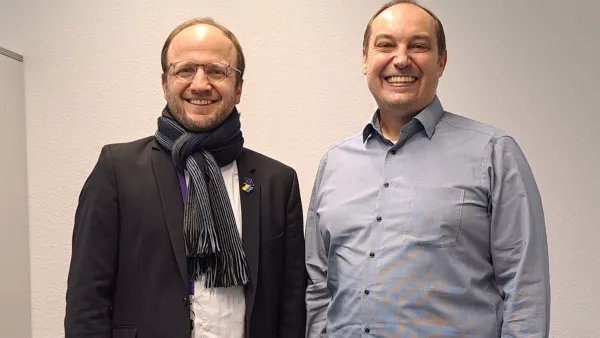
Changes in mobility, energy supply, sustainability and climate change, functioning supply chains, digitalization - companies today are exposed to multifaceted processes of change. Some of these processes are self-selected as a result of entrepreneurial decisions, and some must be supported by society. This change demands agility and a willingness to change from companies as an overall organization. But many employees today also have to change in the course of their professional lives: They have to expand their learned skills, adapt to new structures or even develop entirely new competencies.
Felix Aurich, HR developer at ZF Friedrichshafen AG, showed how challenging a change process can be for a company and its personnel in his guest lecture "Strategic HR Development @ZF - The E-Cademy Project". The lecture took place at the invitation of Professor Dr. Götz Walter as part of the lecture "Industrial and Organizational Psychology" in the Bachelor of Business Administration and Management program. The students were to gain a practical insight into a digital project for the development of personnel at a major international company. The lecture was also attended by students from the master's program in Business Administration and Entrepreneurship, who, as potential managers, wanted to learn about the entrepreneurial possibilities of managing change processes in human resources.
Above all, the transformation of the automotive industry to pure electromobility represents a decisive challenge for ZF. It quickly became clear to ZF that such an extensive change could only succeed with comprehensive further development of employee competencies and skills. This ranges from simple further training and additions to existing skills to retraining to a completely new job description, such as from mechanical engineers to software engineers. In order to successfully manage and implement all of this, ZF relies on a digital concept in personnel development: with the E-Cademy, employees can access digital teaching content that is relevant to their future field of work. The challenge here is to convince employees to actively learn and to create structures that encourage learning. For this reason, primarily digital learning was preferred to offline training.
Felix Aurich also showed the students that content from their studies is extremely relevant in practice: How do I shape leadership today when I need to develop my employees? How can a suitable corporate culture be established that sees education as an important part of overall success? How do I get my employees to move out of their comfort zone and try something new? How is work generally designed today? These are all questions that Professor Dr. Walter actively discusses with students in his courses: "I am pleased that Mr. Aurich shows students that companies really do deal with psychological issues in a concrete way. Nowadays, graduates in business administration are no longer pure number crunchers. In many cases, they also have to consider human factors and actively shape human behavior. Just like at ZF with the implementation of the E-Cademy."